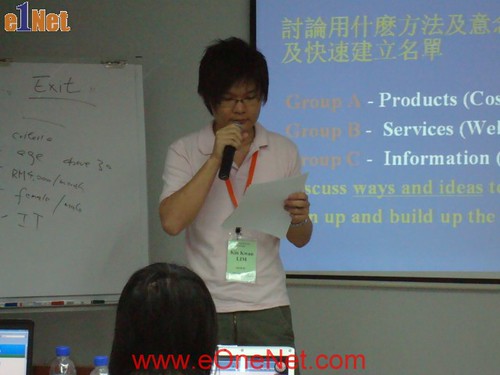Google describes its new Google TV as a "platform that combines your current TV programming and the open Web into a single, seamless entertainment experience." But broadcasters don't necessarily want to see that delicious combination of peanut butter and chocolate Web and TV—and they've now taken to blocking Google TV access.
Think of this as a continuation of the "Hulu Wars." Hulu has always made it difficult to access its content on TV screens even as applications like PlayOn tried to blend the two. The reason isn't hard to find: the TV networks that created and control Hulu aren't keen on cannibalizing their TV revenues by making it too easy to dial up an on-demand, ad-limited experience. If you want to watch Hulu, you're supposed to watch it on the slightly-less-comfortable screen of your computer.
With Google entering the TV platform game, that concern still exists (Hulu now charges $9.99 a month to access its service on other devices, like a TV screen or a smartphone, although it's rumored that will drop to $4.99), but it's joined by another. Google isn't a TV company or a content company; it's essentially a giant advertising company. As Google TV takes off, sucking in every scrap of video on the Web and on TV, the company is poised to become a content aggregator that makes money from advertising on the Google TV service. The networks don't want to continue the model where the aggregator makes cash by the boatload while the content it aggregates sometimes struggles to make any money.
The networks also don't want services like Google TV to destroy the cable subscription model too quickly by making "over-the-top" Internet video too appealing, since big chunks of their cash come from cable's retransmission fees.
So the new Wall Street Journal report about Google TV being blocked comes as no surprise. ABC, CBS, and NBC have all restricted access to the TV episodes on their own websites, though Google is taking the route it usually takes: it tries to strike a monetary deal when content owners put up resistance to unpaid aggregation (this has happened with Google Books, with the Associated Press, etc). Reuters reports that Google is negotiating to free up access to this content, something that will be necessary if Google TV will be used to access more than just broadcast channels and YouTube content.
The DC advocacy group Public Knowledge argues that broadcasters have a public duty to allow access to this material. "It is truly disappointing that broadcasters would leverage their programming to deny access to viewers who watch the shows over another medium—on cable or online," said president Gigi Sohn. "When a broadcaster exercises its market power in pursuit of maintaining a business model while stifling competition by blocking Hulu, Fox.com (or Google TV), the broadcaster violates that public trust and harms consumers... If online video is to emerge as an independent medium, it must be free from the power that broadcasters bring to bear."
How prescient! I just wrote that the dead-tree book is dying and a tipster sent us in this charming little site dedicated to the joy of paper – funded by a paper manufacturer, one of the biggest in the world.
Domtar is the “largest integrated producer of uncoated freesheet paper in North America and the second largest in the world based on production capacity” and business, thus far, has been good. Like buggy whip manufacturers, however, the writing is on the wall – a great deal of the paper they spew out will soon be replaced by bits.
While most of that information, including the lip-service to sustainability, is false, I don’t envy Dotmar’s position. They are a massive paper conglomerate and their bottom line is being attacked by a free newspaper app you can download for iPad. Their best customers for centuries are now, slowly, turning away from them. That said, the website is a ham-handed attempt (one example bit of advice “Senior Executives prefer print…A resume is a summary of your professional career, not a blog about what you had for breakfast.” That’s why they’re called Senior. Duh!) by an entrenched industry to keep making money.
Read their mission statement:
Domtar is committed to the responsible use of paper. We’re also committed to communicating paper’s place and value to the businesses and people that use our products every day. Paper is a sustainable, renewable, recyclable, plant-based product that connects us in so many ways to the important things in life. Great ideas are started on paper. The world is educated on paper. Businesses are founded on paper. Love is professed on paper. Important news is spread on paper.
Businesses aren’t found on paper unless you count the antiquated filing systems required by some lawyers. Love isn’t professed on paper anymore – it’s expressed by Facebook status updates and YouTube videos. Important news is definitely not spread on paper, that much is clear since they decided to create a website instead of a publish wonderfully-printed 500 page book dedicated to the value of paper from the middle ages to today on expensive paper. I’m not being facetious. I’m being realistic.
I love me some paper as much as the next guy. In fact, I love paper books so much that I’ve been buying my son a few selected tomes in hardback or paperback just so we have them down the line. But friends I’m here to tell you that our book collections, impressive as they may be, will be as quaint as our parents old vinyl collections to our kids. I remember going through my Dad’s vinyl, picking out a bunch of great albums (he basically turned me into a Dylanophile and a Beatles fan, thus ruining my chances of getting a date in high school), and recording them to tape for easier listening. This is how my son will treat my book collection – an antiquated media with a great deal of value that will spur him to find the authors I loved as a youth in e-book form.
In the 19th century, everyone thought whale oil was the fuel of the future. It only a took a few years for the the sperm whaling industry to dry up. The same will happen to a number of entrenched industries in the next few decades including paper, petroleum, and hard disk manufacturing. It’s not a question of whether we like the soft, warm glow of spermaceti over the harsh, unwavering electric light, as PaperBecause is trying to suggest. It’s because electric light makes economic and cultural sense. Change comes fast to those who least expect it.
Lujiazui Breakfast: <b>News</b> And Views About China Stocks (Oct. 27 <b>...</b>
Investors and traders in China's main financial district are talking about the following before the start of trade today: Shares in automaker Hong Kong-listed BYD tanked by 9% after the company said profit fell by 99% in the third ...
Sony announces PlayStation Rewards PlayStation 3 <b>News</b> - Page 1 <b>...</b>
Read our PlayStation 3 news of Sony announces PlayStation Rewards.
<b>News</b> - PICS: Regis and Kelly Dress Up as Kardashians for Halloween <b>...</b>
Home | News | Style & Beauty | Moms & Babies | Movies, TV & Music | Healthy Lifestyle | Celebrities � Photos | Video. Subscribe: Magazine | Newsletter | RSS � Subscriber Services | Media Kit | Contact Us | Privacy Policy | Terms of Use ...
atlanta property management
Lujiazui Breakfast: <b>News</b> And Views About China Stocks (Oct. 27 <b>...</b>
Investors and traders in China's main financial district are talking about the following before the start of trade today: Shares in automaker Hong Kong-listed BYD tanked by 9% after the company said profit fell by 99% in the third ...
Sony announces PlayStation Rewards PlayStation 3 <b>News</b> - Page 1 <b>...</b>
Read our PlayStation 3 news of Sony announces PlayStation Rewards.
<b>News</b> - PICS: Regis and Kelly Dress Up as Kardashians for Halloween <b>...</b>
Home | News | Style & Beauty | Moms & Babies | Movies, TV & Music | Healthy Lifestyle | Celebrities � Photos | Video. Subscribe: Magazine | Newsletter | RSS � Subscriber Services | Media Kit | Contact Us | Privacy Policy | Terms of Use ...
Google describes its new Google TV as a "platform that combines your current TV programming and the open Web into a single, seamless entertainment experience." But broadcasters don't necessarily want to see that delicious combination of peanut butter and chocolate Web and TV—and they've now taken to blocking Google TV access.
Think of this as a continuation of the "Hulu Wars." Hulu has always made it difficult to access its content on TV screens even as applications like PlayOn tried to blend the two. The reason isn't hard to find: the TV networks that created and control Hulu aren't keen on cannibalizing their TV revenues by making it too easy to dial up an on-demand, ad-limited experience. If you want to watch Hulu, you're supposed to watch it on the slightly-less-comfortable screen of your computer.
With Google entering the TV platform game, that concern still exists (Hulu now charges $9.99 a month to access its service on other devices, like a TV screen or a smartphone, although it's rumored that will drop to $4.99), but it's joined by another. Google isn't a TV company or a content company; it's essentially a giant advertising company. As Google TV takes off, sucking in every scrap of video on the Web and on TV, the company is poised to become a content aggregator that makes money from advertising on the Google TV service. The networks don't want to continue the model where the aggregator makes cash by the boatload while the content it aggregates sometimes struggles to make any money.
The networks also don't want services like Google TV to destroy the cable subscription model too quickly by making "over-the-top" Internet video too appealing, since big chunks of their cash come from cable's retransmission fees.
So the new Wall Street Journal report about Google TV being blocked comes as no surprise. ABC, CBS, and NBC have all restricted access to the TV episodes on their own websites, though Google is taking the route it usually takes: it tries to strike a monetary deal when content owners put up resistance to unpaid aggregation (this has happened with Google Books, with the Associated Press, etc). Reuters reports that Google is negotiating to free up access to this content, something that will be necessary if Google TV will be used to access more than just broadcast channels and YouTube content.
The DC advocacy group Public Knowledge argues that broadcasters have a public duty to allow access to this material. "It is truly disappointing that broadcasters would leverage their programming to deny access to viewers who watch the shows over another medium—on cable or online," said president Gigi Sohn. "When a broadcaster exercises its market power in pursuit of maintaining a business model while stifling competition by blocking Hulu, Fox.com (or Google TV), the broadcaster violates that public trust and harms consumers... If online video is to emerge as an independent medium, it must be free from the power that broadcasters bring to bear."
How prescient! I just wrote that the dead-tree book is dying and a tipster sent us in this charming little site dedicated to the joy of paper – funded by a paper manufacturer, one of the biggest in the world.
Domtar is the “largest integrated producer of uncoated freesheet paper in North America and the second largest in the world based on production capacity” and business, thus far, has been good. Like buggy whip manufacturers, however, the writing is on the wall – a great deal of the paper they spew out will soon be replaced by bits.
While most of that information, including the lip-service to sustainability, is false, I don’t envy Dotmar’s position. They are a massive paper conglomerate and their bottom line is being attacked by a free newspaper app you can download for iPad. Their best customers for centuries are now, slowly, turning away from them. That said, the website is a ham-handed attempt (one example bit of advice “Senior Executives prefer print…A resume is a summary of your professional career, not a blog about what you had for breakfast.” That’s why they’re called Senior. Duh!) by an entrenched industry to keep making money.
Read their mission statement:
Domtar is committed to the responsible use of paper. We’re also committed to communicating paper’s place and value to the businesses and people that use our products every day. Paper is a sustainable, renewable, recyclable, plant-based product that connects us in so many ways to the important things in life. Great ideas are started on paper. The world is educated on paper. Businesses are founded on paper. Love is professed on paper. Important news is spread on paper.
Businesses aren’t found on paper unless you count the antiquated filing systems required by some lawyers. Love isn’t professed on paper anymore – it’s expressed by Facebook status updates and YouTube videos. Important news is definitely not spread on paper, that much is clear since they decided to create a website instead of a publish wonderfully-printed 500 page book dedicated to the value of paper from the middle ages to today on expensive paper. I’m not being facetious. I’m being realistic.
I love me some paper as much as the next guy. In fact, I love paper books so much that I’ve been buying my son a few selected tomes in hardback or paperback just so we have them down the line. But friends I’m here to tell you that our book collections, impressive as they may be, will be as quaint as our parents old vinyl collections to our kids. I remember going through my Dad’s vinyl, picking out a bunch of great albums (he basically turned me into a Dylanophile and a Beatles fan, thus ruining my chances of getting a date in high school), and recording them to tape for easier listening. This is how my son will treat my book collection – an antiquated media with a great deal of value that will spur him to find the authors I loved as a youth in e-book form.
In the 19th century, everyone thought whale oil was the fuel of the future. It only a took a few years for the the sperm whaling industry to dry up. The same will happen to a number of entrenched industries in the next few decades including paper, petroleum, and hard disk manufacturing. It’s not a question of whether we like the soft, warm glow of spermaceti over the harsh, unwavering electric light, as PaperBecause is trying to suggest. It’s because electric light makes economic and cultural sense. Change comes fast to those who least expect it.
Lujiazui Breakfast: <b>News</b> And Views About China Stocks (Oct. 27 <b>...</b>
Investors and traders in China's main financial district are talking about the following before the start of trade today: Shares in automaker Hong Kong-listed BYD tanked by 9% after the company said profit fell by 99% in the third ...
Sony announces PlayStation Rewards PlayStation 3 <b>News</b> - Page 1 <b>...</b>
Read our PlayStation 3 news of Sony announces PlayStation Rewards.
<b>News</b> - PICS: Regis and Kelly Dress Up as Kardashians for Halloween <b>...</b>
Home | News | Style & Beauty | Moms & Babies | Movies, TV & Music | Healthy Lifestyle | Celebrities � Photos | Video. Subscribe: Magazine | Newsletter | RSS � Subscriber Services | Media Kit | Contact Us | Privacy Policy | Terms of Use ...
Lujiazui Breakfast: <b>News</b> And Views About China Stocks (Oct. 27 <b>...</b>
Investors and traders in China's main financial district are talking about the following before the start of trade today: Shares in automaker Hong Kong-listed BYD tanked by 9% after the company said profit fell by 99% in the third ...
Sony announces PlayStation Rewards PlayStation 3 <b>News</b> - Page 1 <b>...</b>
Read our PlayStation 3 news of Sony announces PlayStation Rewards.
<b>News</b> - PICS: Regis and Kelly Dress Up as Kardashians for Halloween <b>...</b>
Home | News | Style & Beauty | Moms & Babies | Movies, TV & Music | Healthy Lifestyle | Celebrities � Photos | Video. Subscribe: Magazine | Newsletter | RSS � Subscriber Services | Media Kit | Contact Us | Privacy Policy | Terms of Use ...



